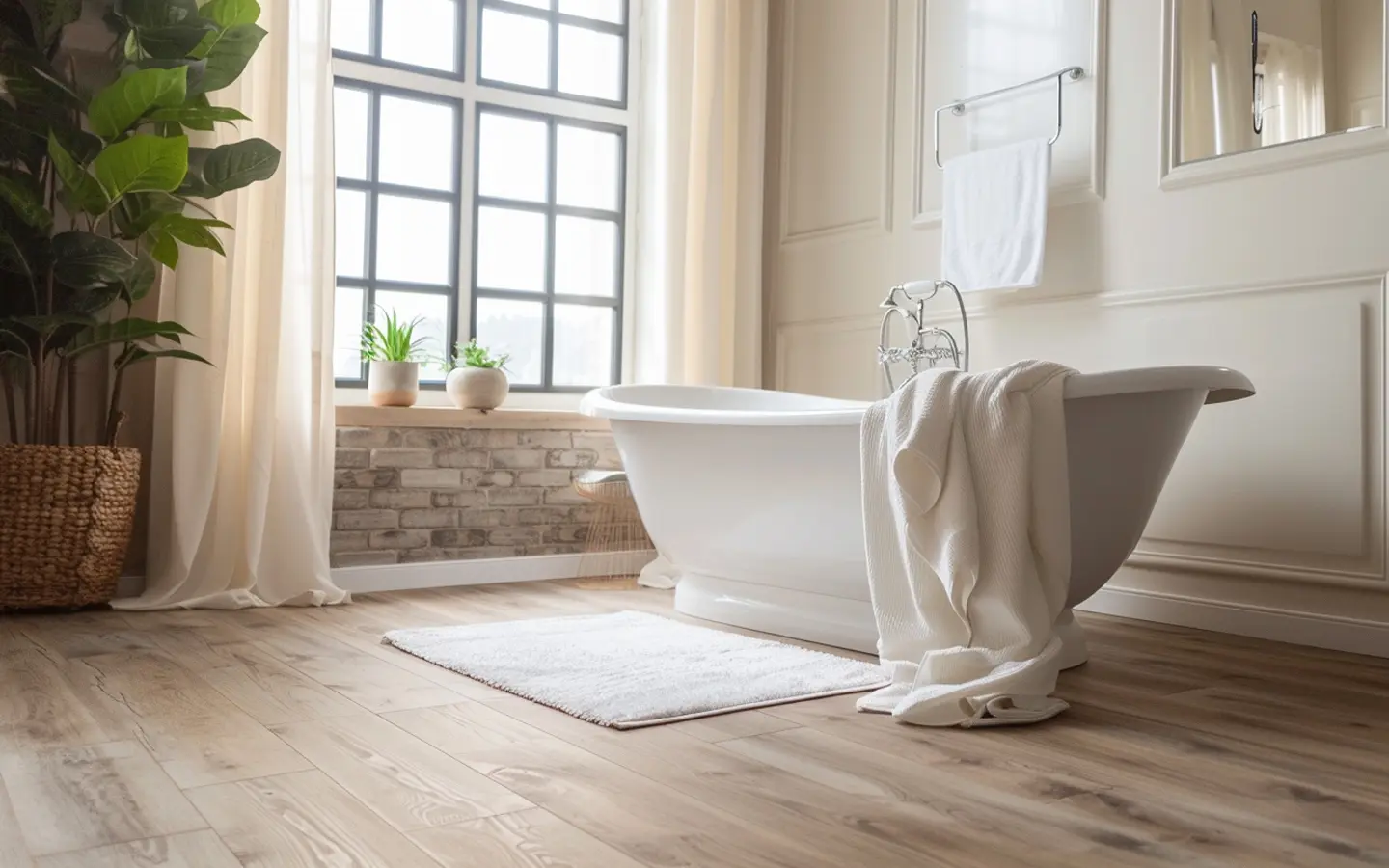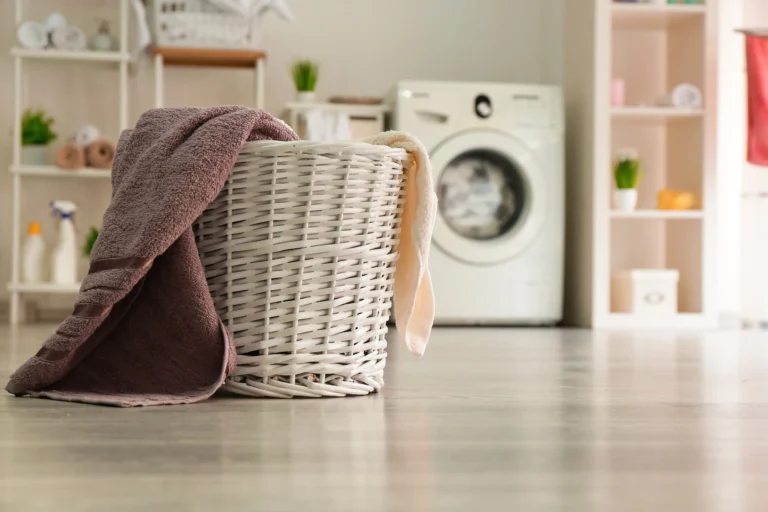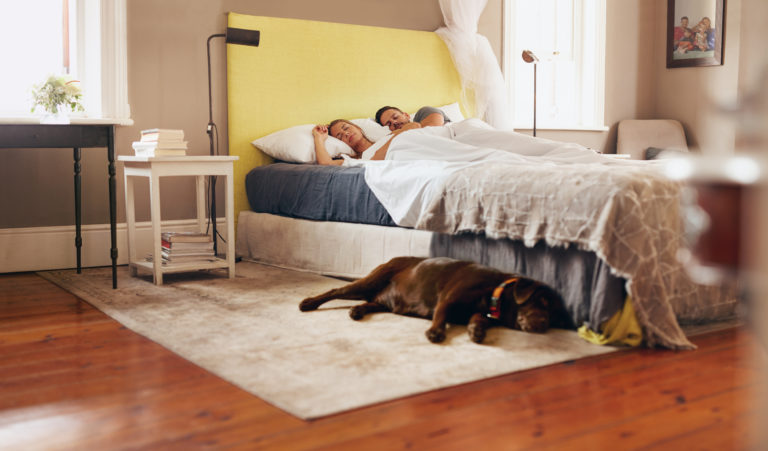Most people know vinyl flooring can go, well, basically everywhere.
You can put it in your living room, bedroom, basement, or mudroom, but vinyl flooring in the bathroom? Bathrooms see occasional spills and splashes of water, especially around the shower area. Classic tiles are usually the way to go here, but not everyone loves tiles.
They are cold to the touch, extremely slippery, and expensive. The opposite of vinyl. So how does vinyl flooring such as LVP or LVT work in the bathroom and not cause problems?
Let us explore this together and see whether vinyl flooring in bathroom is a myth or an affordable reality.
Understanding the Question
We want to answer this question from a few different angles.
Asking if vinyl flooring goes in a bathroom may be interpreted as asking whether it is wise to use it there because it may buckle and be susceptible to water damage.
But some folks may be asking. Can I use vinyl in my bathroom, design-wise? Would it look good and what type of vinyl flooring would best work there?
So yes, We will cover both questions and answer them for you. While some of it will be our opinion and experience, the rest we did some research on this subject, so you don’t have to.
Can Vinyl Flooring go in the bathroom? The Answer
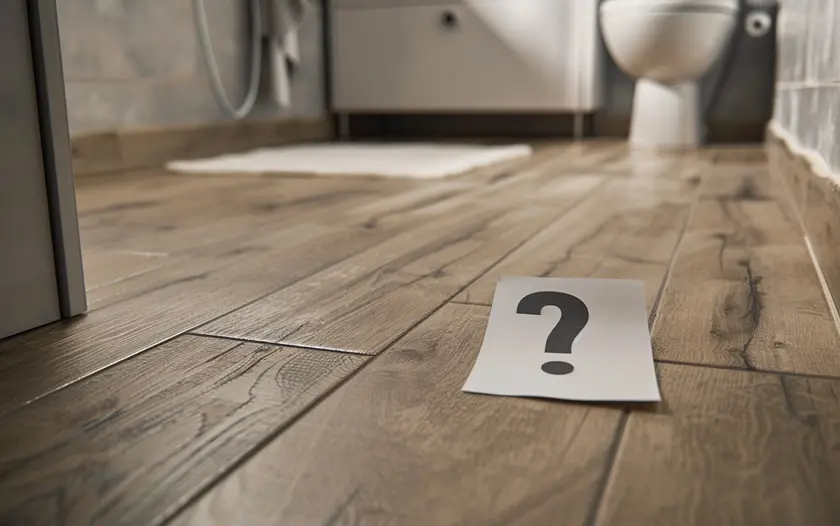
Absolutely YES. Vinyl flooring works great in bathrooms and is very easy to install.
It’s waterproof, easy to clean, and isn’t a slip hazard like traditional tiles. What we love about it, is that vinyl flooring is so durable but also so soft to walk on. It’s not cold like tiles and provides great sound absorption (for your singers in the shower).
You can put LVP in bathrooms, if you want a floor that looks like wood, or stone, the design options are almost endless. The best of all, it’s cheap.
You can also put LVT in bathrooms if you want something that looks like tile but doesn’t need regular cleaning of grout lines, which we are sure no one likes doing.
Best Brands of 2024
Importance of proper installation of LVT/LVP in bathroom
Ok, this one is big. You want to follow these instructions when installing LVP in bathroom.
First, you can glue down your LVP in the bathroom if that’s what you want, but you don’t have to. The floating floor works just fine. And it won’t be a menace if you need to replace a plank or two.
The second vital thing is to caulk the edges where the flooring meets the wall or baseboard. Unless you do that, do not consider you have a waterproof floor.
Yes, you can use LVP in bathroom, but don’t let the water sit on it for too long or get under it. It may cause mold growth or bad smell and you won’t know where it’s coming from. So protect the edges and make sure to install it properly.
If you decide on a floating floor, tell the contractor about this. They may want to convince you to pay a bit more for the glue-down, but it will cost even more when removing it if you decide to renovate your bathroom again.
Again, caulk the edges where the flooring meets the wall or baseboard. If you do that, you have a waterproof floor that can prevent mold growth.
LVP in bathroom and design choices
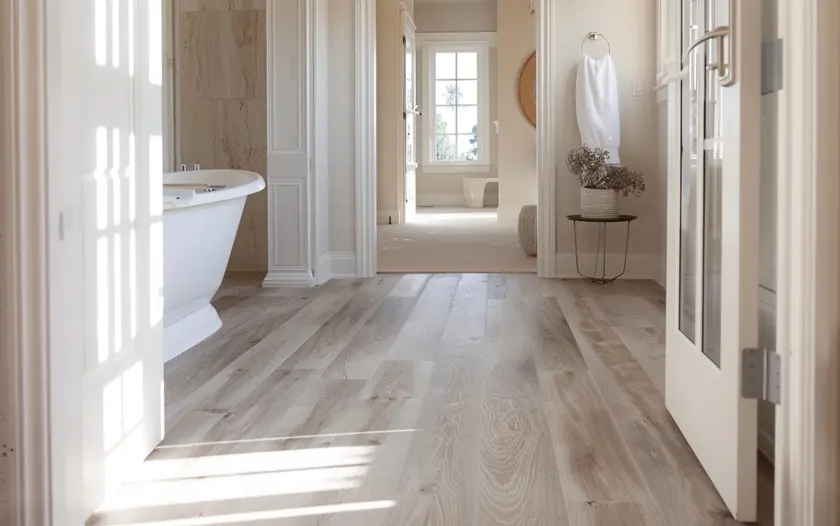
Alright, let’s answer the second question.
Can you use vinyl flooring in the bathroom, design-wise?
We said using LVP in bathroom is a great idea, and we mentioned the design options are almost endless nowadays. That statement is true for LVT too, so first of all, choose whatever you prefer. Do you want longer planks that resemble hardwood flooring, or do you want something that looks like classic tiles?
Think about the color palette, lighter colors tend to give a spacious feel to smaller bathrooms. Darker hues look great too, especially if laid out in a herringbone pattern.
Also, you want to install vinyl plank flooring continuously throughout your home, including bathrooms, to maintain visual consistency. The space will feel larger and more unified if you use the same flooring type. This will also make it easier to maintain and clean since there are no abrupt transitions between different flooring types.
What you shouldn’t do, is install new and modern luxury vinyl planks in bathroom without updating other elements. If you pair new LVP flooring with outdated bathroom fixtures it will create a jarring contrast, and it more often than not looks bad.
You want your flooring to complement other elements, or if you are doing a big home renovation, change it up together. You want to make it look like everything is installed at the same time. Create something you will love, not something that offends every time you visit the bathroom.
Also, don’t connect vinyl plank flooring directly to the carpet.
Transitioning from vinyl plank flooring to carpet can disrupt the visual flow and create an awkward transition point. This abrupt change in texture and material can look bad visually and compromise the overall design cohesion.
Finally, try to avoid connecting vinyl plank flooring directly to other wood or wood-look floors.
Trying to match vinyl plank flooring with existing wood or wood-look floors can be challenging. Different colors, textures, and grain patterns, should all be kept in mind. A mismatched transition between these materials looks disjointed and lowers the overall aesthetics of the space.
Conclusion
Now you see that LVP in bathroom is a reality, not a myth!
When installing it, caulk the edges where flooring meets the wall so you don’t allow any water to get under it. You don’t need to glue the planks down, floating floor installation is enough.
Match LVP in bathroom to other elements so it feels and looks cohesive. You can enjoy the easy maintenance and other great qualities of LVP in bathroom too. If you are a tile lover but don’t like grout-cleaning, choose LVT.
Choose the flooring type you like and keep it cohesive. Abrupt transitions from vinyl to carpet or vinyl to tiles and hardwood don’t look nice. Create a harmony of style that is yours.
About The Author

Christian Southards
March 28, 2024
Christian is a freelance everything-writer, editor, and interior design nerd. When he’s not writing about flooring and remodeling, he’s either writing news for the California American Legion or working with his hands on his house. His favorite type of flooring is hardwood, but admits to having carpet in his bedroom.
